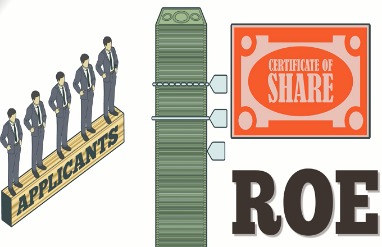
It’s possible for a product backlog to get too large to be effectively managed. This happens if a team adds every idea that gets suggested for addressing the outcome but never explores the ideas or removes the items that won’t be delivered. Product backlogs can also grow to an unmanageable size if all large product backlog items are split into smaller product backlog items too far in advance of when the team will work on them. A team owns its product backlog and may have a specific role – product owner – with the primary responsibility for maintaining the product backlog.
The NEW Agile Resource Guide
- While a steadily-growing backlog may indicate increasing demand, it can also point to problematic internal processes.
- A product backlog is an ordered list of tasks, features, or items to be completed as part of a larger roadmap.
- Moreover, they understand the interdependencies or conflicts an item might create, etc.
- A backlog in software engineering is an organized collection of tasks, features, or work items that are yet to be completed.
- In Agile projects, the teams dedicate their time to product creation and make adjustments as their project progresses.
Through regular grooming sessions and refinement activities, you can continuously prioritize items based on their level of importance and impact on project success. It’s also possible to temporarily inflate sales backlog with limited-time sales events or discounts, which can then be brought down to more stable levels over time. Managing sales backlog effectively means understanding what the backlog ratio represents and how it impacts business operations. While initial backlog growth is generally positive, steady revenue combined with customer fulfillment will increase your company’s value.
What is the Relationship Between Backlogs and Roadmaps?
When you have an anchor document to facilitate these cross-functional alignment discussions, it is yet another reason that every product team should develop and maintain a backlog. The product backlog contains every potential item under consideration for a product. Not every item on a product backlog is fully fleshed out and ready to work.

It stands at the crossroads of growth and operational efficiency, impacting companies across industries. Enhance your sprint reviews with Atlassian’s comprehensive 3-step guide. Explore strategies for sprint review meetings, and level up your estimated useful life and depreciation of assets Agile process.
Features can be complex—often referred to as epics—or they can be simple. Creating a story map can help your team determine what the user needs most. A hiccup in receiving necessary supplies directly affects a company’s ability to complete tasks or orders on time. The deeper impacts touch on revenue, as a backlash from delays could lead to lost sales or penalties. Furthermore, customer satisfaction—a cornerstone of business success—takes a hit when businesses fail to meet expectations.
The roadmap provides context for the prioritized backlog items within the larger strategic objectives and timeline of the overall product roadmap. For example, suppose a theme for a coming sprint is simplifying the checkout process. Consequently, product development teams may complete sprint tasks more quickly than expected. For example, particular projects may get unexpectedly put on hold or canceled.
With the rise of agile methodologies like Scrum, a need emerged for a more dynamic and adaptable approach to managing requirements. The “product backlog” concept was introduced as a prioritized list of user stories or features that could be continuously refined and reprioritized throughout the project lifecycle. With a purpose-built roadmap tool, individual backlog items link with the more prominent themes in the roadmap. The backlog gets itself when stakeholders drill down into the details of each piece.
Refine product backlog items
This iterative approach allows for flexibility and responsiveness to changing requirements, ultimately leading to a more efficient and effective development process. The backlog is dynamic, constantly evolving as new tasks are added, existing ones are updated, and priorities are adjusted. Items in the backlog are typically prioritized based on their importance and urgency, allowing teams to focus on the most critical tasks first. A backlog in software engineering is an organized collection of tasks, features, or work items that are yet to be completed. It is a can a company’s working capital turnover ratio be negative crucial component in project management and agile development, serving as a central repository for all pending work.
Exciting updates to Agile Alliance membership levels and pricing!
At its core, backlog management helps business analysts collaborate with stakeholders and development teams by providing visibility into upcoming work. Maintaining an organized backlog ensures everyone understands what needs to be accomplished and when. A backlog is a list of tasks required to support a larger strategic plan. For example, a product development context contains a prioritized list of general journal items. Typical items on a product backlog include user stories, changes to existing functionality, and bug fixes.


Leave a Reply